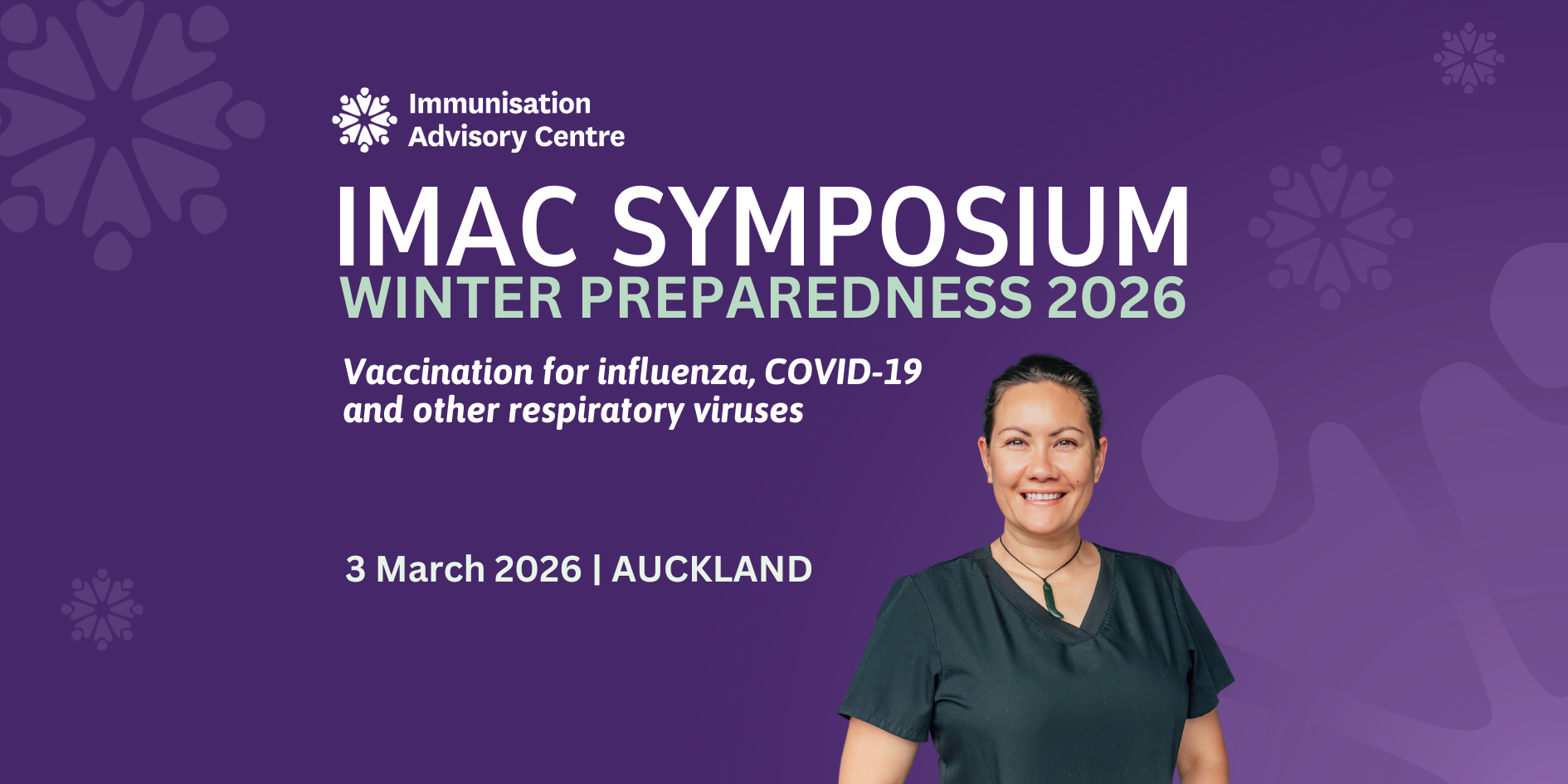WHO and UNICEF raise alarm on drop in childhood immunisation, so do we

Child immunisations have dropped so far during COVID that the World Health Organisation and UNICEF are raising the alarm, as is the Immunisation Advisory Centre, IMAC. Internationally 25 million children have missed out on life-saving vaccinations and here in New Zealand Aotearoa we are seeing a similarly concerning trend

Media Release, 21 July 2022
Child immunisations have dropped so far during COVID that the World Health Organisation and UNICEF are raising the alarm, as is the Immunisation Advisory Centre, IMAC. Internationally 25 million children have missed out on life-saving vaccinations and here in New Zealand Aotearoa we are seeing a similarly concerning trend.
“Planning and tackling COVID-19 should also go hand-in-hand with vaccinating for killer diseases like measles, pneumonia and diarrhoea,” said Dr Tedros Adhanom Ghebreyesus, WHO Director-General. In New Zealand, we are seeing more and more outreach clinics where multiple vaccinations can be provided at once. IMAC supports this work continuing and expanding, especially the community outreach being done by Māori and Pasifika health providers, but the statistics paint a concerning picture.
Internationally, first-dose measles is at its lowest level since 2008 internationally, down 24.7 million which increases the potential for outbreaks around the world including in New Zealand of course. We are at high risk of measles returning, and of a resurgence in whooping cough, both vaccine-preventable diseases.
Dr Anna Howe, Research Fellow, Paediatrics: Child and Youth Health at the University of Auckland provides IMAC with immunisation coverage for children in New Zealand.
She says, “Here in New Zealand our childhood immunisations are also dropping, creating larger and larger equity gaps meaning those children most at risk are getting more and more at risk of getting sick or even dying from vaccine-preventable illnesses. This is why it’s vitally important that parents and caregivers get their tamariki vaccinated without delay when they’re eligible, which provides them with life-saving protection.”
This graph from Dr Howe shows how much childhood immunisations have dropped by. As you can see, vaccinations at ages 6 months, 18 months and 2 years have dropped significantly.

Our other area of concern is the ethnic breakdown, which shows very concerning equity differences that need to be addressed, particularly around the timeliness of receiving immunisations at the right age. Delaying the vaccination puts young children at high risk of some vaccine-preventable diseases, in particular whooping cough and measles.
The overall coverage rates trend has dropped from nearly 80 percent coverage in 2017 to around 65 percent coverage this year in June. Māori and Pasifika rates are lower still and show an urgent need to support and expand the good work being done by Māori and Pasifika health providers working closely with their communities to reach those that can’t easily access vaccinations.
The leadership provided by the new Te Aka Whai Ora - Māori Health Authority, and Te Whatu Ora - Health New Zealand, will be critical in turning these statistics around.


Trending News

.jpg)






